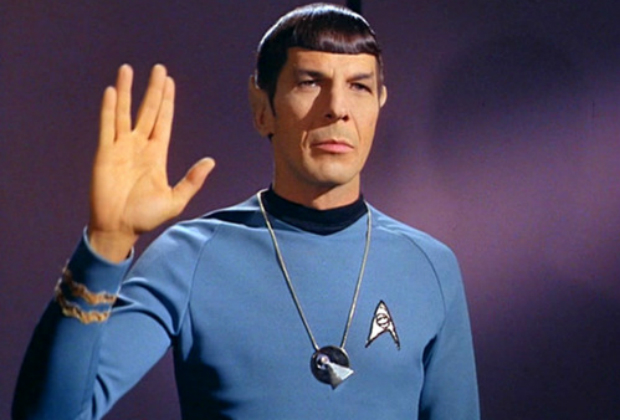The Debate. Capital D. Everyone is undergoing meltdowns about it. Too many people are reacting as if this is the death knell of, well, Everything.
Chill. Firstly, read the transcripts. Right here. Then, for one interpretation, here’s an analysis from The Hill. And just to round out some of this, here’s some Fact Checking from AP.
(Back in the 1960 presidential campaign—some of you may remember this—Nixon and Kennedy had a debate. At that time, a large segment of the population got most of their information from the radio, but this was the dawn of television, so the debate was both broadcast and televised. Those who listened on the radio thought Nixon had won the debate. Those who watched thought Kennedy had. Style over substance? Despite what Nixon later proved to be, the fact was they were not so terribly far apart on issues, so this was a question of nuance and detail. This time, thought, nuance has nothing to do with it, but people who read will likely have a better grasp of what happened than those who watched.)
Now, one thing to keep in mind: the people who are enthusiastic about a Trump second term care virtually nothing about facts. It has been demonstrated for several years now that Trump holds the record for lies in office of any president and his supporters do not care. Trying to impact his campaign by pointing this out has had very little success because his support has nothing to do with What Is but rather What Is Desired. Going toe-to-toe with one over what the facts are gains virtually nothing because that is not the important thing to them.
Which is to say that we have a situation in which the problem is not so much with the head guy but with the foot soldiers. Our fellow citizens.
As for the rest of us, we should just take a breath and look at our priorities. Biden had a bad night. Yes, he is 81, and he’s been working his ass off and he had a cold and, lest we need reminding again, this is a man with a lifelong struggle with stuttering. So the takeaway here should be on the content of his words, not their delivery. Of course, we have come to accept that performance matters more than reason, and by performance I do not mean how well the job is done but how good one looks while doing it. I’ve been railing against our obsession with this whole “inspiration” thing for years. Stump preachers who bring crowds to a boil and get them rolling around and speaking in tongues are “inspiring” but I wouldn’t want them run anything important. We missed a bet in 2016 by not electing one of the most qualified and competent administrators in our lifetime because she didn’t thrill us with inspiring jeremiads, while the guy with nothing to say and who said it in such a way to make people think he was a leader got the job and proceeded to dismantle—or try to—70 years of progress. Stop it, please. Look at the qualifications and track record.
But these calls for Biden to step down for someone else are ludicrous. Even if you’re not a fan, you must see that this would simply enable Trump. The practicalities and logistics aside, exactly who might be able to pull that off? In four months? The names floated so far carry too little national weight. And we’re talking about a political landscape that presently suggests that RFK Jr is a viable third party candidate. The judgment necessary to switch candidates now, it seems to mean, is a bit lacking.
Which is beside the point. Stick to the issues, the biggest one being the Project 2025. It runs to 900 pages, so let me just link to a synopsis from the BBC (because the BBC is one of the most nonpartisan sources available, for a number of reasons). Read it here. Among other things, it calls for the destruction of our civil service. Trump tried this in his first term. Pink slips were floating around D.C. like confetti during his first year. He was stripping departments of personnel, rendering them dysfunctional, then claiming they didn’t work. The tax cuts called for are absurd. The entire project, in capsule, is designed to produce a permanent oligarchy. It seeks to curtail if not eliminate social security. Now, whether this could all be done would depend on Congress, but we have close races there, too. Point is, the GOP has become a party seeking to wreck the social programs which most of us depend on because…
Well, I’m not sure anyone has an explanation that doesn’t sound like something from a James Bond spy thriller. Whether it would succeed, as I say depends on Congress, but the fight would be a bloodletting (figuratively) that could lead to a collapse of the thing they claim to want to preserve, restore, or create, depending on who is speaking, which is the tremendous prosperity that is fast becoming national folklore.
Trump has stated his intention to establish an across the board 10% tariff. He claims this would result in foreign countries paying a price to sell goods here, but from the first time he imposed one we know that the direct result is a rising cost on Americans. If you think inflation is bad now, wait for that one.
His whole thing about turning abortion rights back to the states is a dodge. It is literally the equivalent of saying slavery should be up to the individual states. This is not hyperbole. If we here ascribe to the idea that as Americans, regardless of state, we have rights as people and citizens, then dividing up those rights by state and asserting that some states are more equal than others is an absolute rejection of American rights. For the anti-abortion movement, this is a divide-and-conquer tactic. With a national standard and federal protection, where you live does not diminish your rights. States Rights is one of those shibboleths that sound good to certain people, but only those who would never be directly affected adversely. And it is unfair.
And as to the entire right wing obsession with LGBTQ+ rights, this is where the hypocrisy seems most evident. If as they like to claim they support the principle of Individuality, then why curtail that right when it runs counter to their collective prejudices? It seems obvious that historically for any fascist regime to gain traction they must create and demonize a group of Outsiders with which to frighten everyone else into giving the power to “control” the “subversives.”
Now, as to Biden’s fitness to run, that will be established by his actual campaign. Concerns over his health should he win are, frankly, a lesser concern, because what he brings to the task is what he has already brought, which is a team of people most of whom are presently doing their jobs quite well. They don’t go away. And should he falter over the next four years, they’re still there, and those who are touting Kamala Harris now would get their wish, and the country would have four more years of the major repairs this administration has been doing, regardless. Cold? No, practical. Any president could die in office.
As for those policies of which I speak, we have seen the most remarkable and underappreciated recovery since the end of WWII. Some of this is bounceback from the pandemic, but what matters is the handling of such bouncebacks. George W. Buch inherited a marvelous economy when he took office in 2000 and he mismanaged it, which led to the 2008 crash and burn.
Our standing globally is on the rise. Trump oversaw our lowest period of international reputation. He simply doesn’t know what he’s doing.
But I am concerned about those behind the scene backing him, like the Heritage Foundation, which is a think tank obsessed with strong leaders (as in dictators) and which exhibits a class disdain for ordinary people that makes Scrooge look like a liberal.
A note on economic nonsense. We cannot keep giving money to billionaires expecting results the billionaires are not interested in. Trickle down does not work. And we have seen across the ocean the results of a 14 year experiment with austerity that has caused the fall of the conservative government in Britain. Simple thing: you cannot save your way to prosperity. You have to spend. We’re seeing that at play now here. The conservatives are wrong about that. But that’s not what they’re interested in anyway.
But for the time being, stop panicking. Vote for the administration. Vote for self-interest. For for the people who support the principles you want to see hold sway. Above all, though, I repeat: stop panicking. Keep the oligarchs out of office. These people will only hurt the vulnerable.
What good would it do to secure the borders and then see everything within them crumble to ash?
Lastly, why give the narcissist a chance to once more prove his lack of redeeming virtue?





